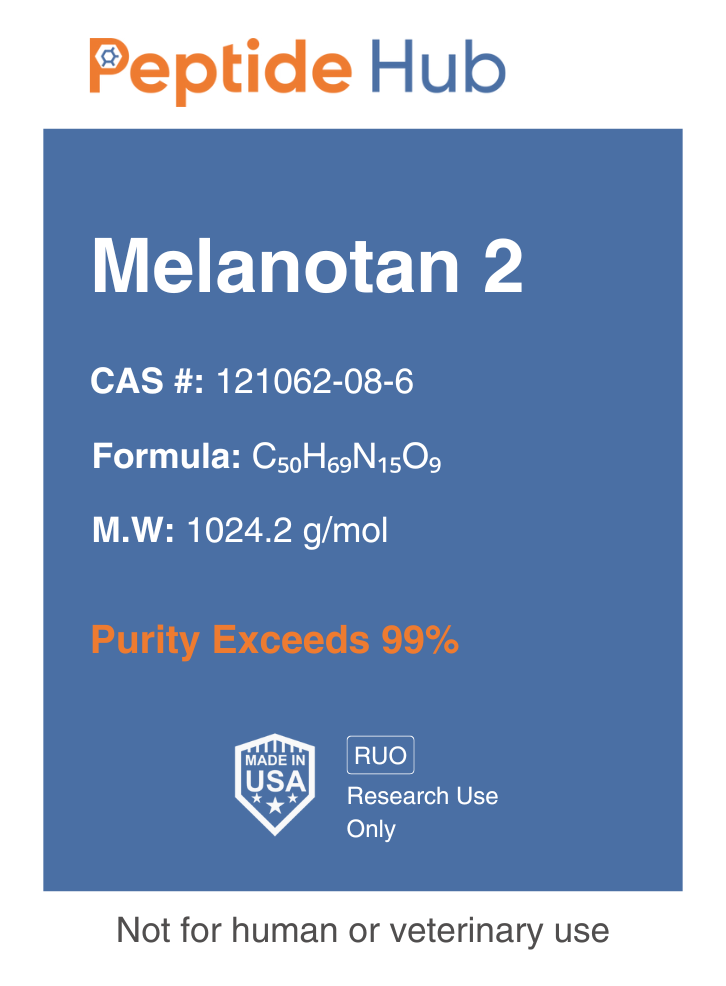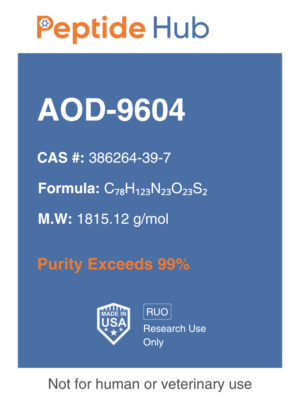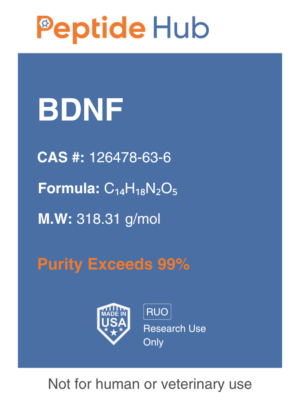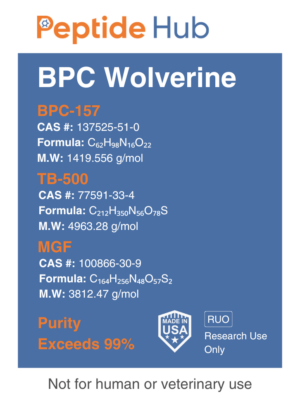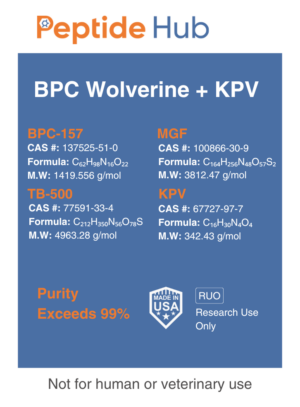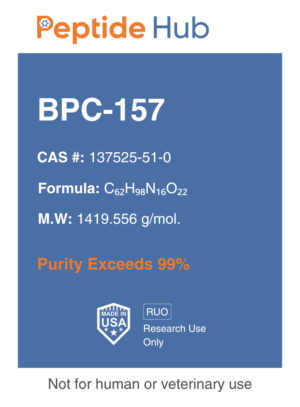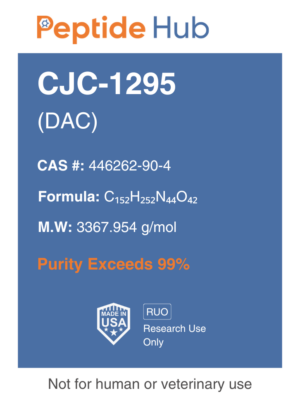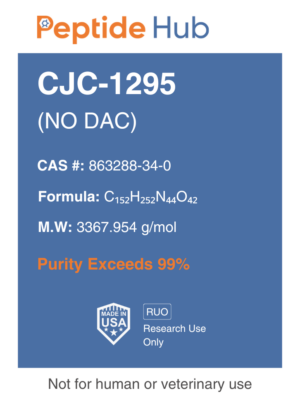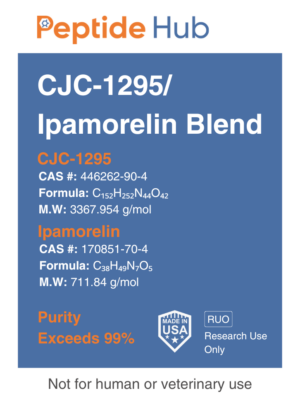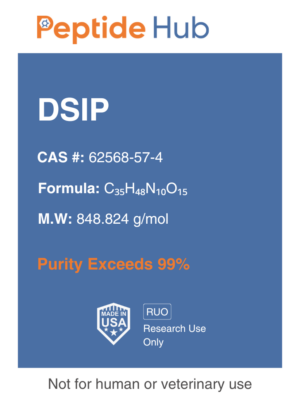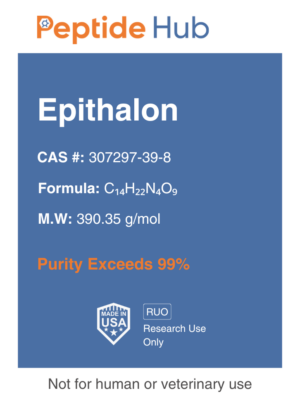Melanotan 2
$50.00

Melanotan 2 – 10mg
Melanotan 2 is a synthetic peptide best known for its ability to stimulate melanin production, leading to skin tanning without exposure to UV rays in research settings. This peptide mimics the action of the hormone alpha-melanocyte-stimulating hormone (α-MSH), which activates the production of melanin, providing a natural defense against sun damage and promoting a darker complexion. In addition to its tanning effects, Melanotan II has been studied for its potential in enhancing libido and sexual function due to its influence on sexual arousal pathways.
Buy Melanotan 2, research also suggests that it may help suppress appetite and support weight loss efforts in studies.
Research Peptides
99% Purity
3rd Party Tested
USA Made
Note: Peptides will arrive in a lyophilized (powder) form for maximum stability
The peptides are available for research and laboratory purposes only. Please review and ahere to our Terms and Conditions before ordering.
- Description
- Certificate of Analysis
Melanotan 2 Structure

Source: PubChem
What is Melanotan 2?
Melanotan 2 (MT2) is a synthetic peptide developed to mimic the effects of the naturally occurring hormone alpha-melanocyte-stimulating hormone (α-MSH). It is primarily researched for its ability to stimulate melanin production, leading to skin tanning, but it has also gained interest for its potential effects on sexual function, appetite suppression, and fat loss. Melanotan 2 is studied in fields related to skin health, UV protection, and metabolic regulation.
The Origin of Melanotan 2
Melanotan 2 was developed as part of efforts to find an effective method of promoting skin tanning without harmful exposure to UV radiation. Researchers first synthesized the peptide in the 1980s with the goal of reducing skin cancer risk through artificial stimulation of melanin production. Its potential impact on other bodily functions, such as libido and appetite regulation, has since expanded its scope of research.
Melanotan 2’s Unique Composition
Melanotan 2 is a cyclic heptapeptide designed to bind to melanocortin receptors in the body, particularly those involved in melanin production and sexual function. Its ability to activate specific receptors has made it a focus in research on both cosmetic and therapeutic applications, from skin protection to sexual health.
Mechanism of Action
Melanotan 2 works by binding to melanocortin receptors, which are found in various parts of the body, including skin cells (melanocytes). When these receptors are activated, they stimulate the production of melanin, the pigment responsible for skin color. This process can enhance tanning and protect the skin from UV damage. Additionally, Melanotan 2 interacts with receptors in the brain that influence sexual arousal and appetite, broadening its potential uses.
Skin Tanning and UV Protection
Melanotan 2’s primary research focus is its ability to increase melanin production, offering a protective effect against UV radiation. This makes it of interest in studies aimed at reducing the risk of skin cancer and preventing sunburn, particularly for researchers studying fair skin who are prone to UV damage.
Skin Tanning and Pigmentation
One of the most notable effects of Melanotan 2 is its ability to produce a natural-looking tan without excessive sun exposure. By stimulating melanin production, MT2 provides a protective layer against UV radiation, making it a subject of research for skin cancer prevention and sunburn protection.
Potential Effects on Sexual Function
Melanotan 2 has also been explored for its potential effects on sexual function, particularly in men with erectile dysfunction. Studies suggest that MT2 may stimulate receptors that influence sexual arousal, making it an area of interest for researchers studying treatments for sexual disorders.
Why Melanotan 2 is Different from Other Peptides
Melanotan 2 is unique among peptides due to its wide range of potential applications, from skin tanning to influencing sexual health and metabolism. While other peptides may target a single function, MT2’s ability to affect multiple melanocortin receptors allows for a broader scope of research.
For Research Use Only



